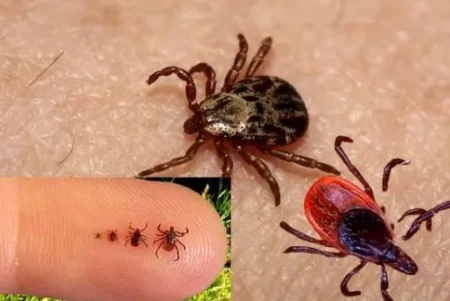Global Health Emergency
The World Health Organization (WHO) has classified the current pox outbreaks in Congo and other African nations as a global emergency, underscoring the need for immediate efforts to stop the virus from spreading.
Recently, Sweden reported its first case of a new pox variant, which had only been detected in Africa until now, in a traveller. Meanwhile, European health officials have cautioned that more cases might be imported.
Here’s an overview of pox and its potential for further spread:
Is mpox going to trigger another pandemic?
It is improbable. Pandemics, like the swine flu and COVID-19, usually emerge from airborne viruses that spread rapidly, often through individuals who may not exhibit any symptoms.
Mpox, or monkeypox, primarily transmits through direct skin-to-skin contact with an infected individual or via contaminated clothing and bedding.The virus typically causes noticeable skin lesions, which might deter people from close contact with those infected.
On Friday, Europe’s Centre for Disease Prevention and Control indicated that additional pox cases brought in from Africa are “highly likely.” However, they assessed the probability of significant outbreaks occurring locally within Europe as very low.
Experts believe that the risk to the general public remains minimal in countries where pox is not currently spreading.
How different is mpox from COVID-19?
Mpox spreads at a much slower rate compared to the coronavirus. Following the identification of the coronavirus in China, the number of cases surged rapidly, growing from a few hundred to several thousand within days. In January alone, the case count multiplied over tenfold in just one week.
By March 2020, when the World Health Organization declared COVID-19 a pandemic, there were already over 126,000 confirmed cases and 4,600 deaths—only about three months after the virus was first detected.
In comparison, it has taken until 2024 for pox cases to approach 100,000 worldwide, with around 200 reported deaths, according to the World Health Organization.
Unlike the early stages of the COVID-19 pandemic, vaccines and treatments for pox are already available.
“We have the tools necessary to control pox,” stated Dr Chris Beyrer, director of Duke University’s Global Health Emergency Institute. This situation differs from COVID-19, where we initially lacked vaccines and antiviral treatments.
Mpox cases in Africa prompt health warning
Over a dozen African countries have reported confirmed pox cases this year, prompting Global Health Emergency authorities to declare a global health emergency on August 14. The Democratic Republic of Congo is facing the most significant outbreak.
How quickly will these mpox outbreaks be stopped?
The situation remains uncertain. The 2022 pox outbreak, which affected over 70 countries, was controlled within months, largely due to vaccination efforts and the availability of treatments for at-risk populations in wealthier nations.
Currently, most pox cases are concentrated in Africa, with 96% of the infections and deaths occurring in Congo, one of the world’s poorest nations, where the healthcare system is overwhelmed by issues like malnutrition, cholera, and measles. Although Congolese officials have requested 4 million vaccines from international donors, none have been received.
Despite the World Health Organization declaring pox as a global emergency in 2022, Africa received minimal access to vaccines or treatments.
Dr Chris Beyrer from Duke University emphasized that it is in the global community’s best interest to invest in ending the outbreaks in Africa now.
We’re in a strong position to manage this pandemic, but we must choose to prioritize Africa,” he stated.
The Science and Educational Media Group of the Howard Hughes Medical Institute supports the Health and Science Department of the Associated Press.










